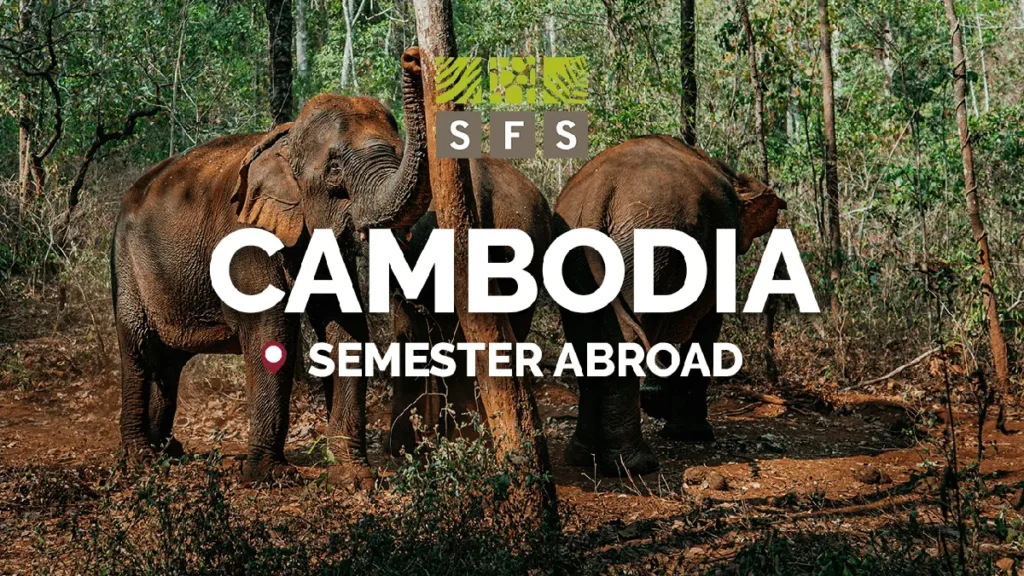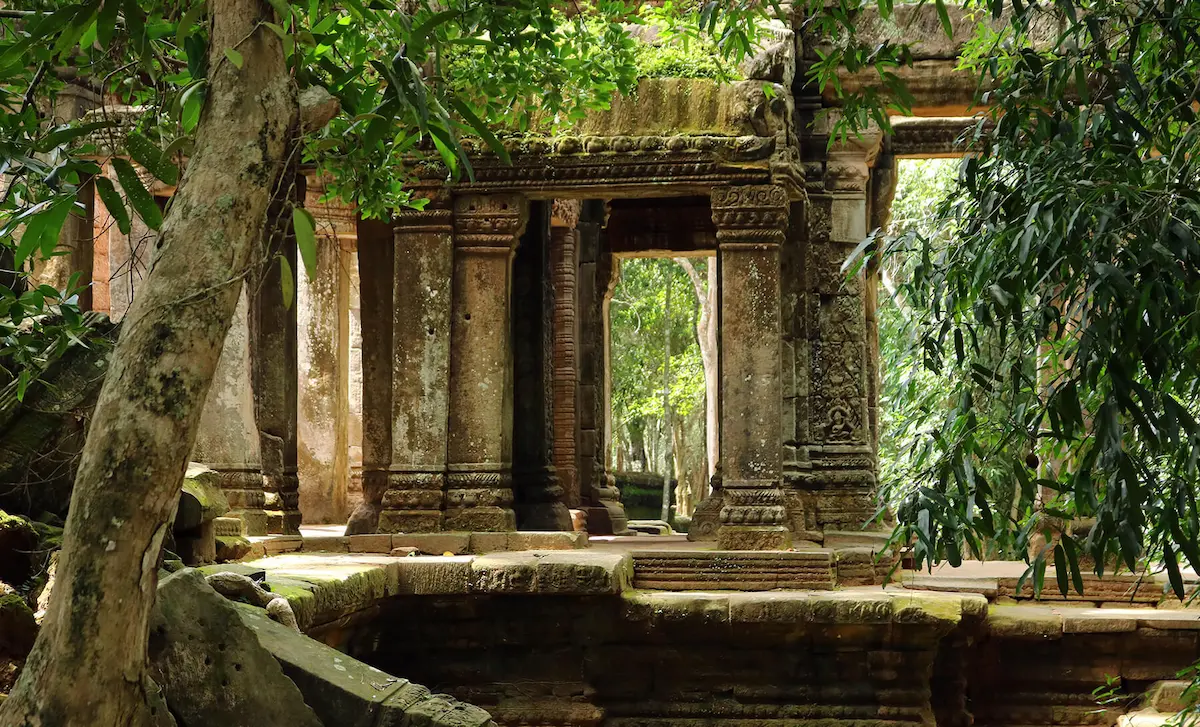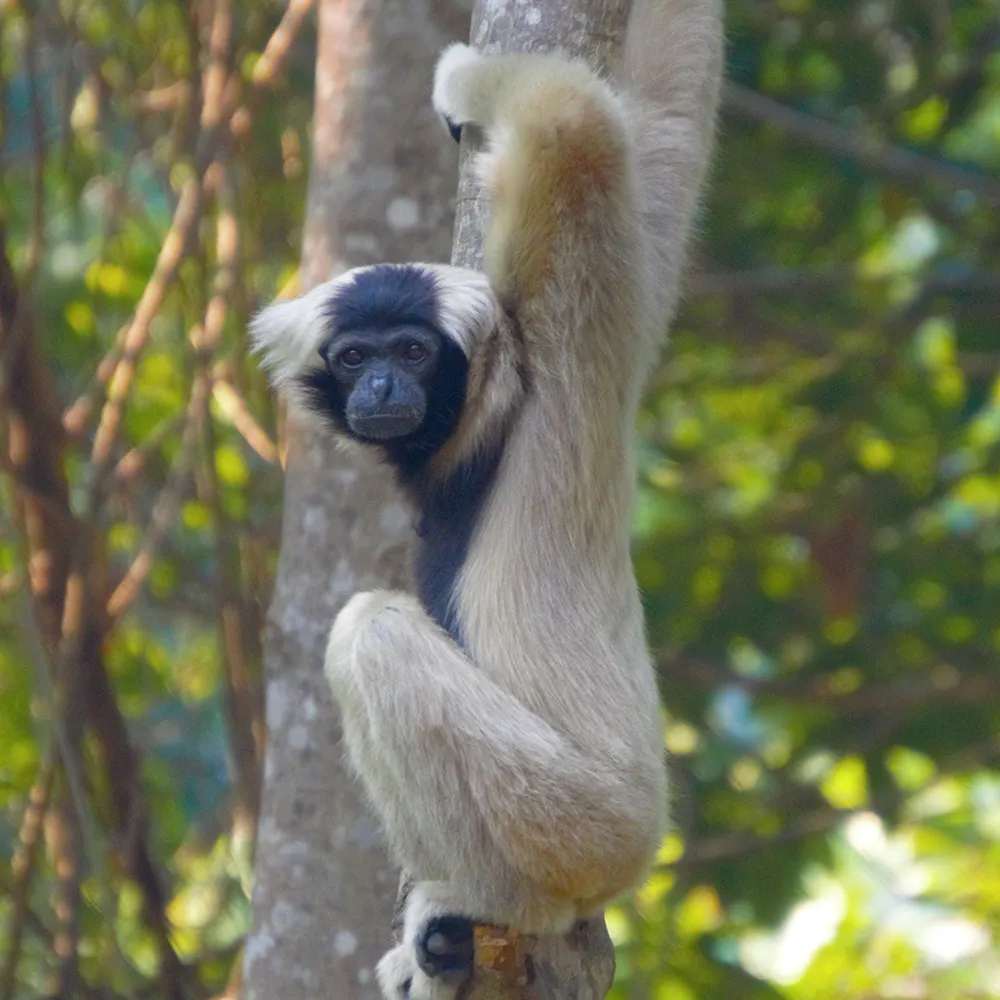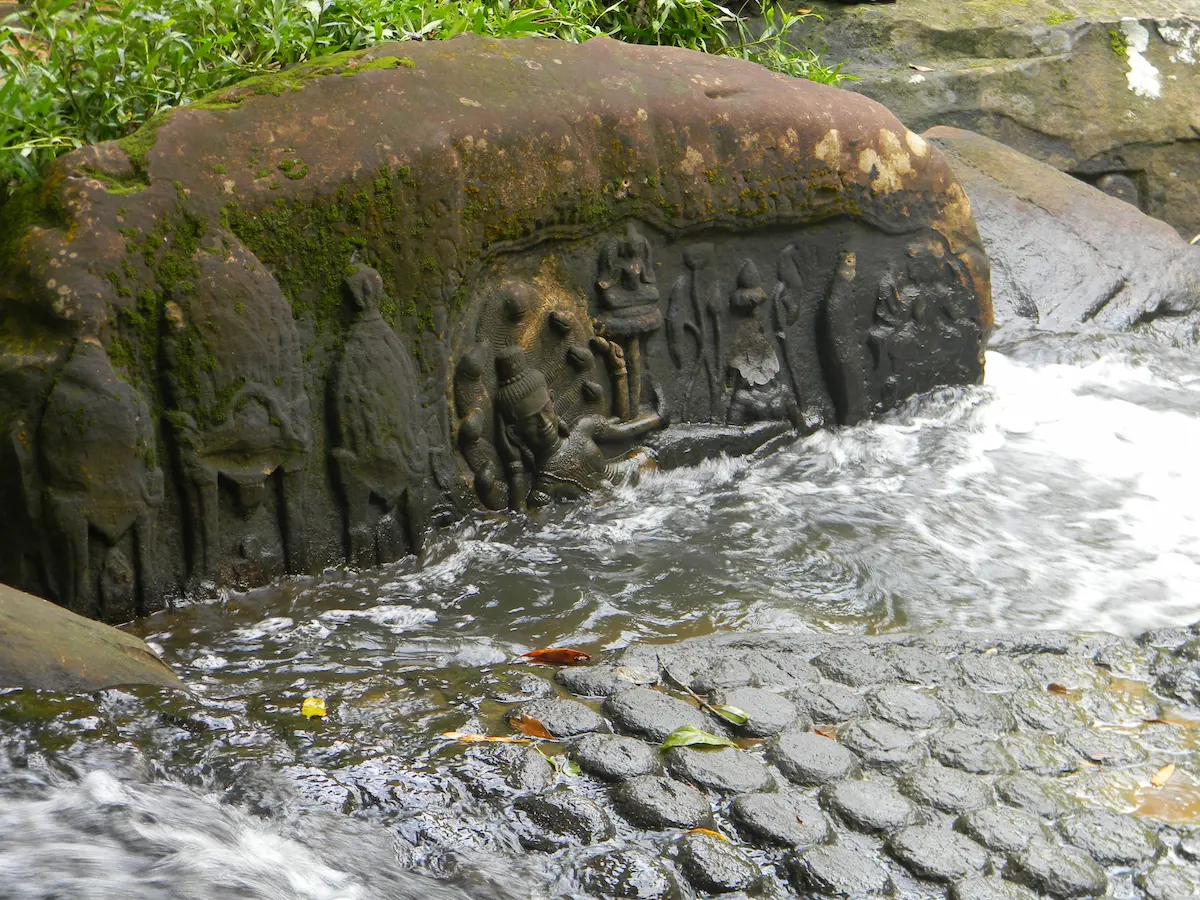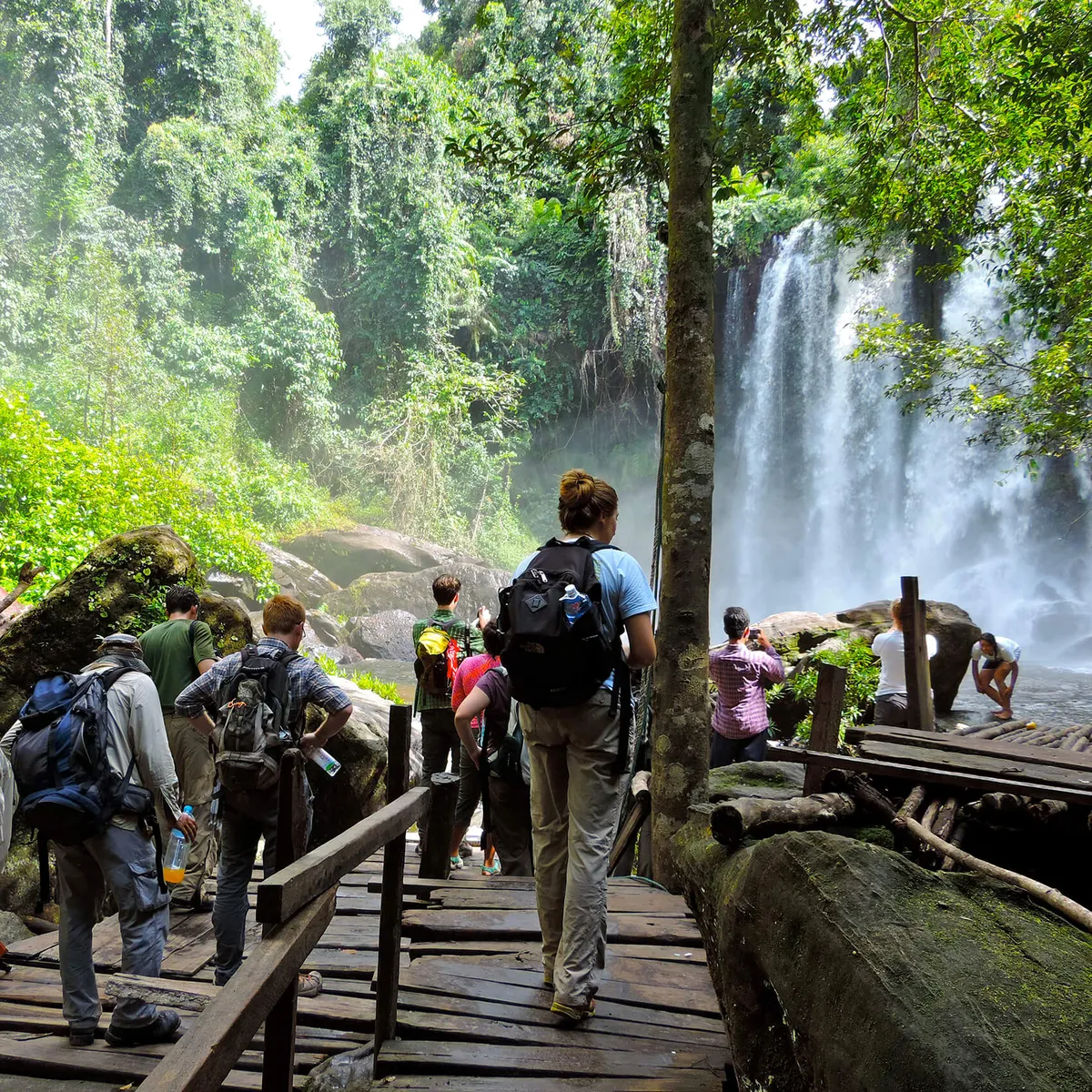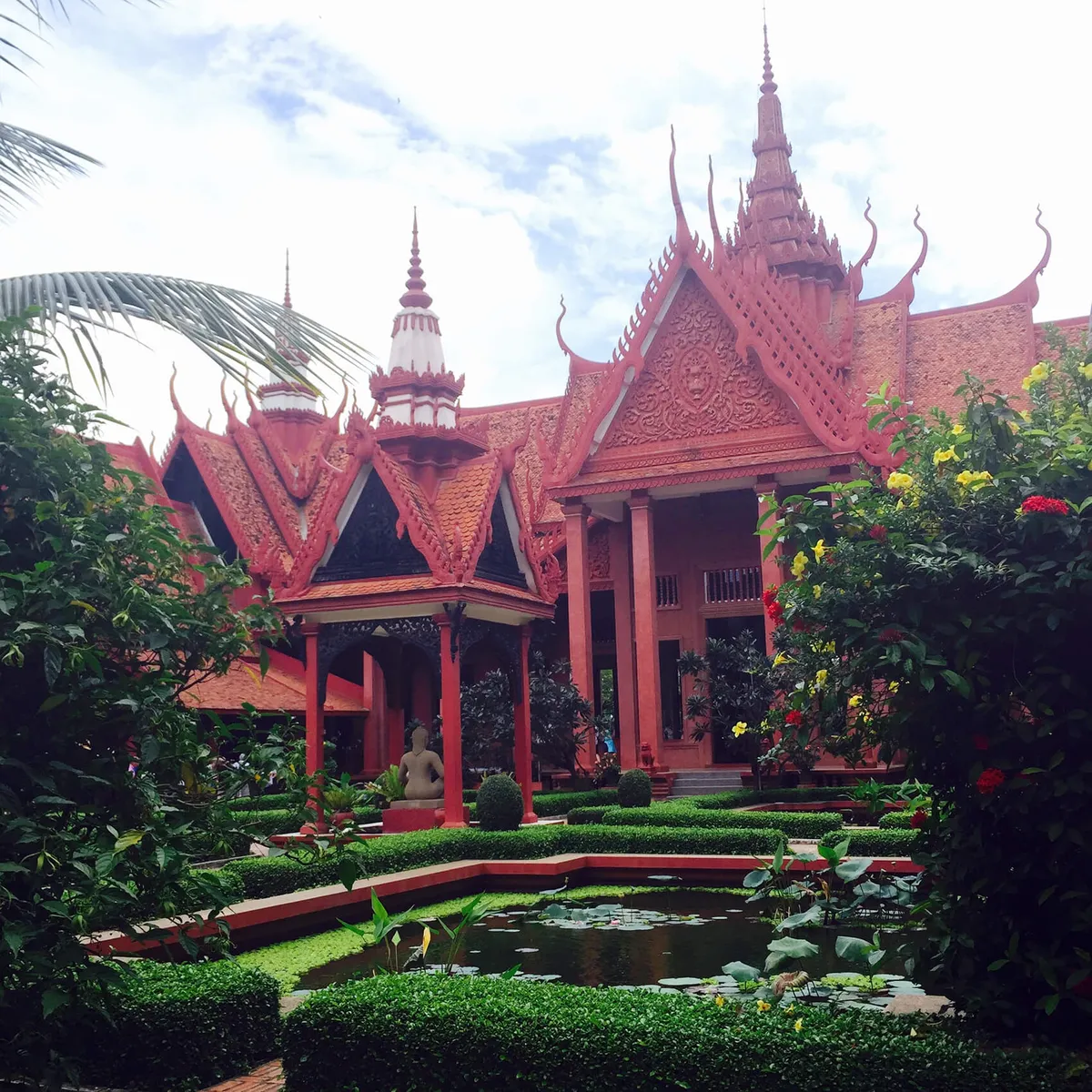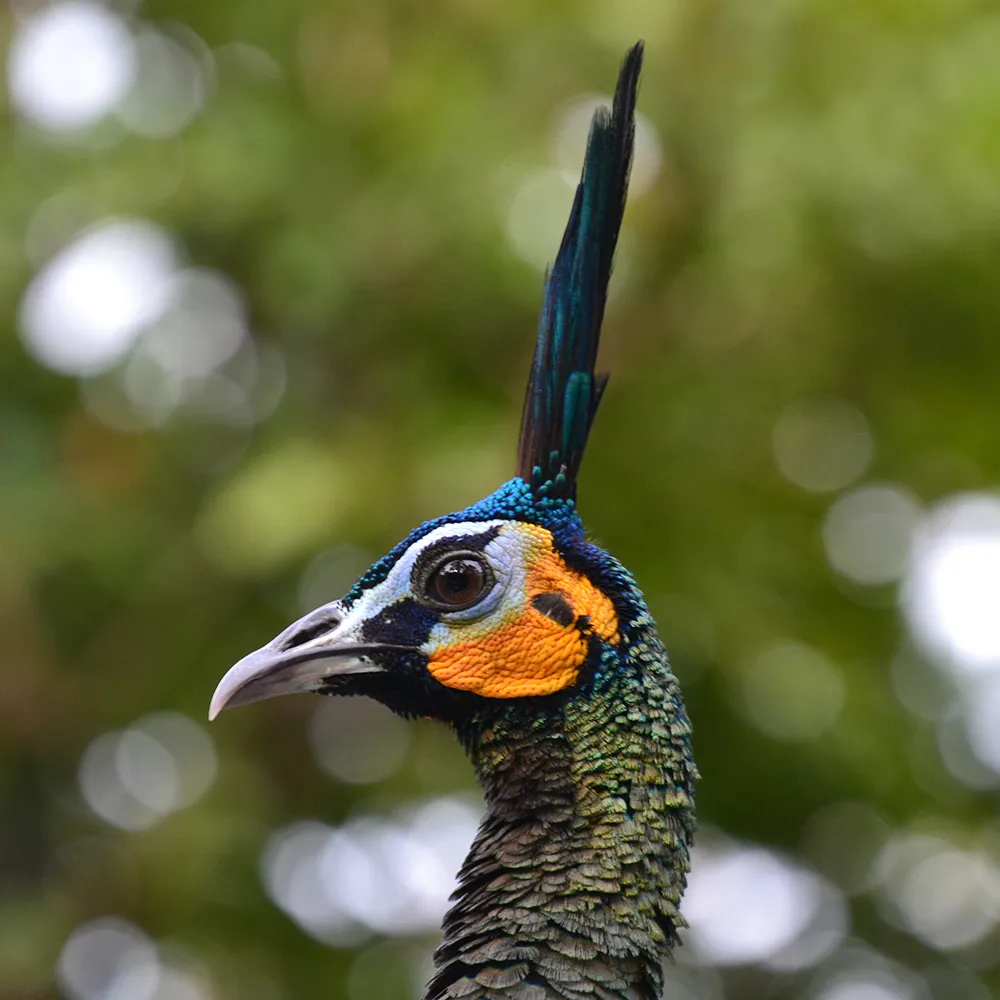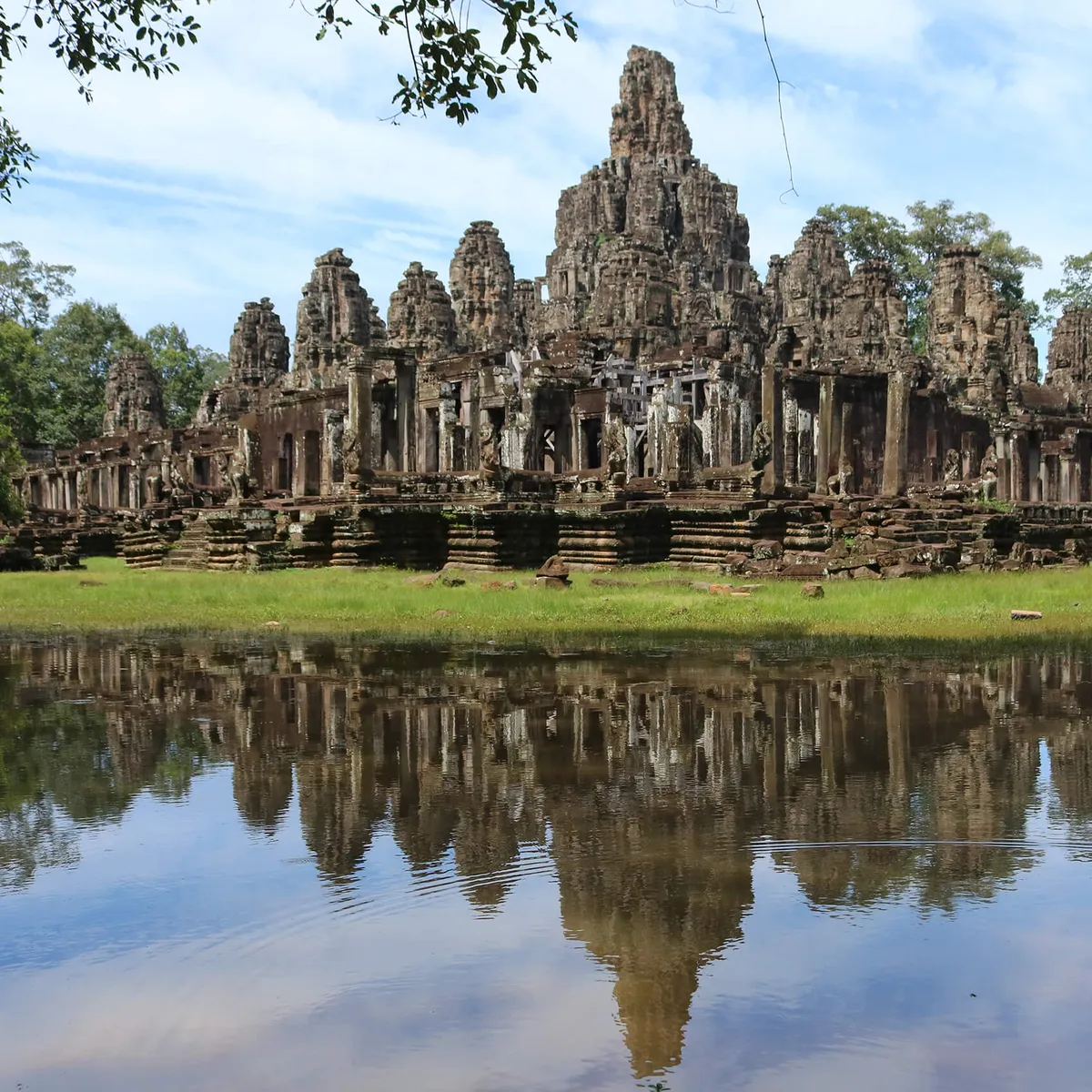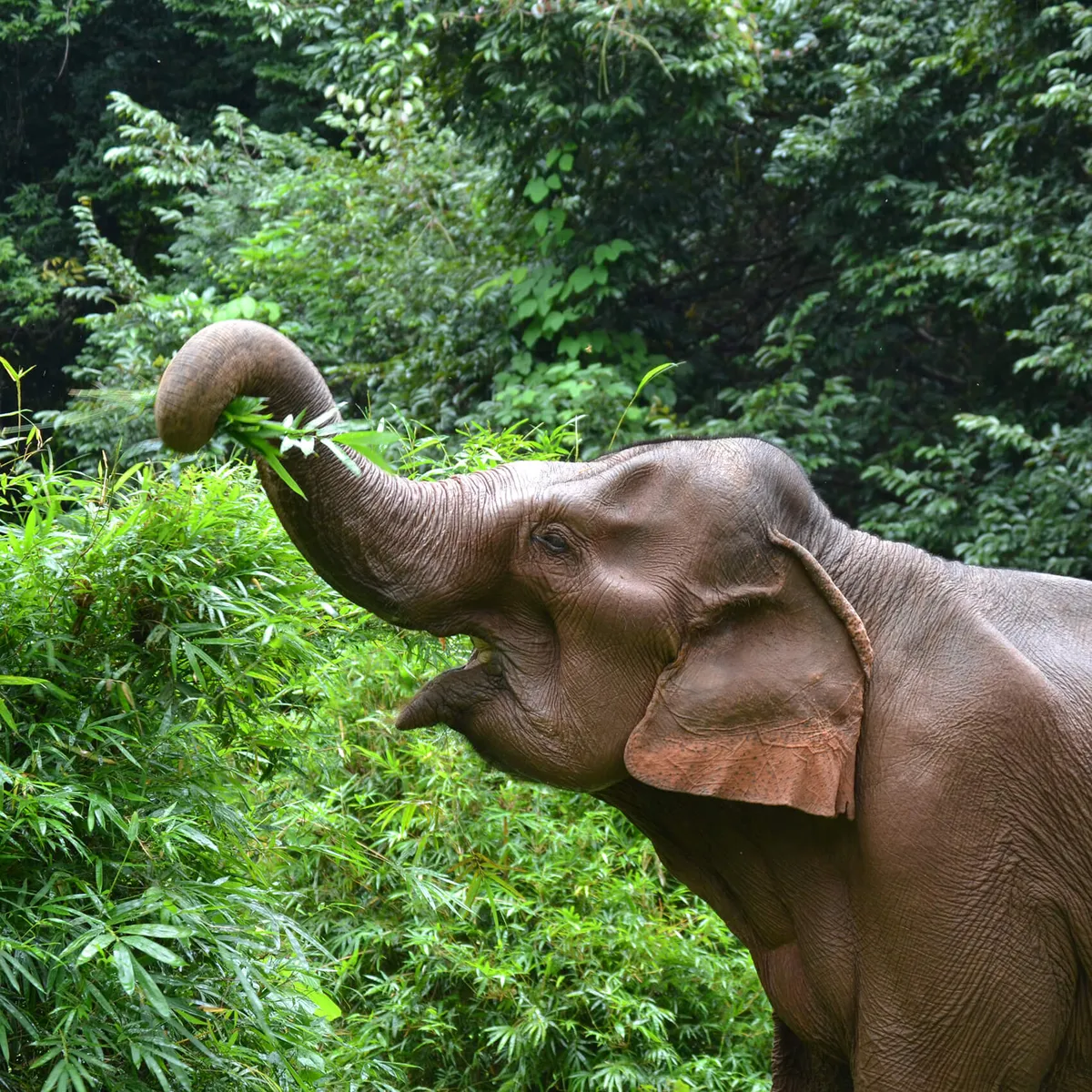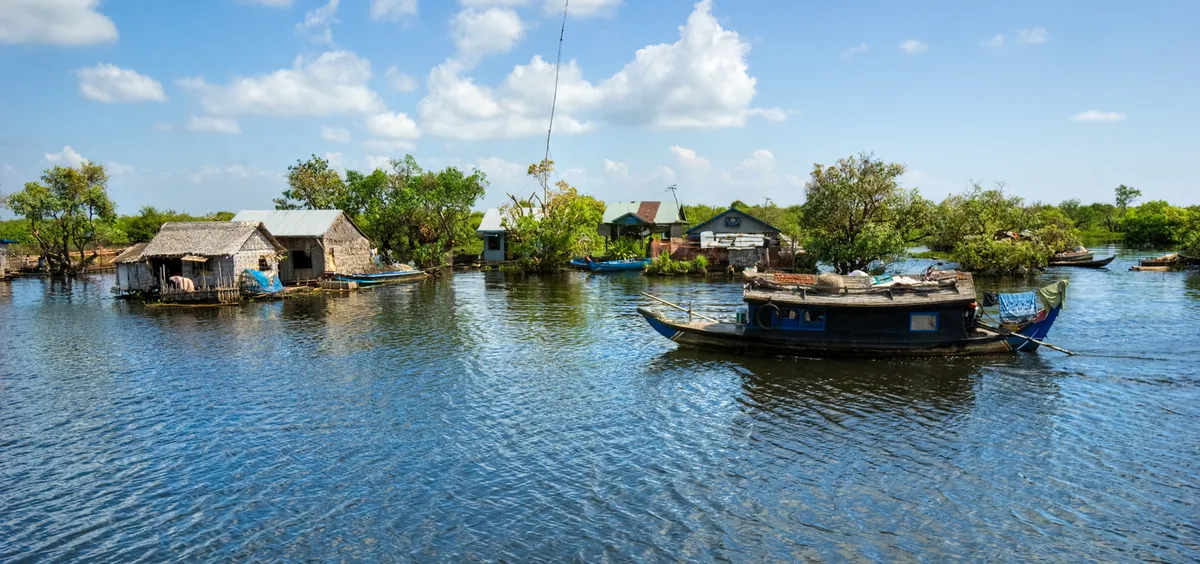Environmental Justice and Mekong Ecologies
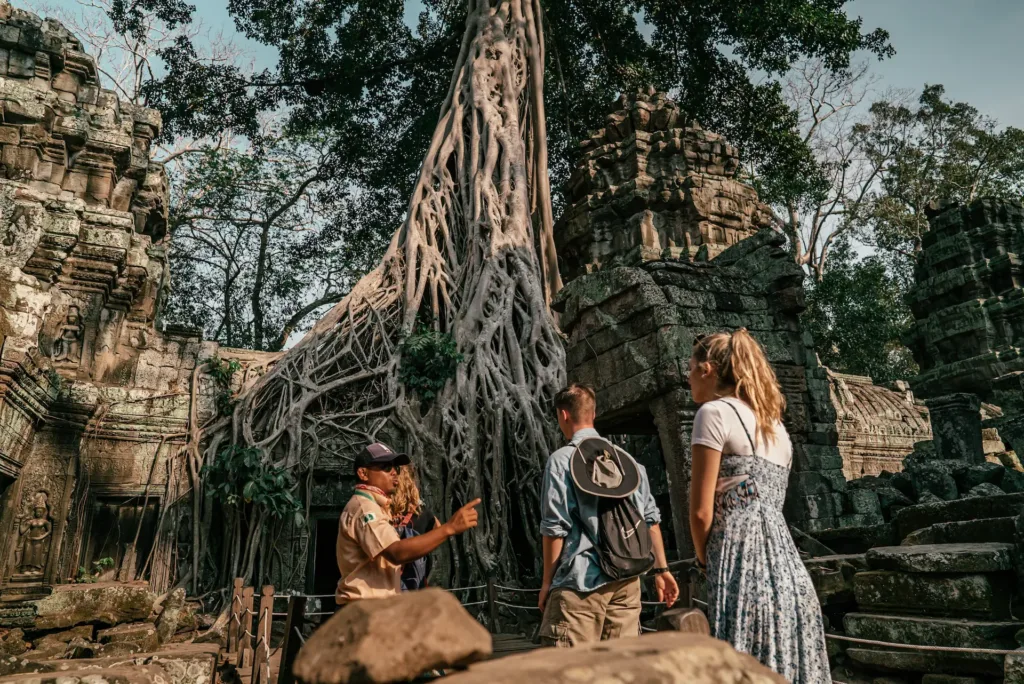
Program Costs
- Tuition
- Room & Board
- Total
Application Deadlines
Resources
Environmental Justice and Mekong Ecologies
In Cambodia, the struggle to conserve ecosystems and to ensure livelihoods are deeply entwined. From the ancient temples of Angkor to the jungle highlands, from the urban center of Siem Reap to the shores of the Great Lake, you will see firsthand how people are dealing with threats to their ecosystems and livelihoods. Dive into the themes of community livelihoods, natural resource access and management, and the ethics of conservation and development while exploring diverse perspectives on environmental management issues, learning to conduct community-based data collection, and understanding the complexities of human-wildlife conflicts. Traveling extensively, you will spend time in the elephant-inhabited forests of Mondulkiri, along the banks of the mighty Mekong River, and the vibrant capital city of Phnom Penh.
In the final weeks of the semester, you’ll spend your time out in the field conducting an extensive research project.
- Spend the night in a floating village on the Tonle Sap Lake and speak with villagers about climate-related livelihood challenges and adaptation strategies.
- Visit the Mondulkiri highlands to study elephant conservation and learn about the changes and challenges to the indigenous Bunong peoples’ traditional lifestyles.
- Explore the jungle temples of the ancient city of Angkor, including Angkor Wat, the largest religious monument in the world and UNESCO World Heritage Site.
- Learn about Khmer history and arts at the National Museum of Cambodia in Phnom Penh, Cambodia’s vibrant and booming capital.
- Conduct a comprehensive field research project: Develop a research question, collect and analyze data, write a paper, and present your findings. Read more about SFS Directed Research projects.
Academics
This academically rigorous program follows a six-day/week schedule. Each program combines theory learned during classroom sessions with field-based applications. The interdisciplinary curriculum is designed to help students actively discover and understand the complexities of environmental, social, and economic issues in Cambodia. Read more about the SFS program model.
Major academic themes include:
- Climate change impacts
- Elephant ecology and conservation
- Traditional livelihoods and ecological knowledge
- Community conservation strategies
- Indigenous rights and challenges
- Protected areas and threatened ecosystems
- Environmental ethics and justice
- Natural resource governance
Courses
On the Environmental Justice and Mekong Ecologies program, you will take three 4-credit disciplinary courses, one 2-credit language and culture course, and a 4-credit capstone Directed Research course. Courses are participatory in nature and are designed to foster inquiry and active learning. Each course combines lectures, field exercises, assignments, tests, and research. All courses are taught in English. Click on each course to view a description and download the syllabus.
Language and Culture of Cambodia
The Language and Culture course consists of two modules: Cambodian society and culture, and Khmer language. It offers an introduction to spoken Khmer and explores the history and culture of Cambodia. The socio-cultural module aims to immerse students in the local culture and enhance their ability to work effectively in community-based research. While the primary focus is on Cambodia, Vietnamese history is also covered due to shared politics and history. The Khmer language module focuses on beginner-level listening and oral practice to improve communication and comprehension skills in everyday situations. Both modules emphasize direct interaction with local communities through lectures, field visits, cultural events, and community outreach. Assignments include journal entries, cultural discussions, briefings, and community interactions. The Language and Culture course consists of two modules: Cambodian society and culture, and Khmer language. It offers an introduction to spoken Khmer and explores the history and culture of Cambodia. The socio-cultural module aims to immerse students in the local culture and enhance their ability to work effectively in community-based research. While the primary focus is on Cambodia, Vietnamese history is also covered due to shared politics and history. The Khmer language module focuses on beginner-level listening and oral practice to improve communication and comprehension skills in everyday situations. Both modules emphasize direct interaction with local communities through lectures, field visits, cultural events, and community outreach. Students engage in activities like overnight homestays, workshops with local students, community events, and service projects. Assignments include journal entries, cultural discussions, briefings, and community interactions.
Conservation Science and Practice in Cambodia
This course introduces the concepts, tools, and incentives to effect conservation of the environment and natural resources. The field of conservation is focused on protecting biological diversity—including ecosystems, species, and genetic diversity—by promoting processes, both ecological and social, that support biodiversity. The course focuses on five core themes: what biodiversity is; why biodiversity is important; threats to biodiversity; strategies for conservation; and the concept of sustainability. We explore the practical aspects of conservation using local case studies, considering the array of conservation strategies in the region, and using this lens to evaluate global concerns on a local scale.
Ecosystems and Livelihoods
This course focuses on the human landscape that envelops the natural ecosystems of the Lower Mekong Basin. We examine the intersection of natural and physical systems with the livelihood strategies employed by fishers, farmers, and merchants in the Mekong Basin. Students investigate the high levels of dependence upon natural resources by local populations and the critical threats to the ecology of the region. Students discover the primary drivers of change in local livelihood strategies and analyze attempts by international and national actors to find a sustainable balance between human needs and preserving biodiversity.
Environmental Ethics and Development
This course takes a pragmatic approach to environmental ethics, looking, through a variety of thematic scenarios, at how decisions relating to the environment can be made through an applied ethical lens. Following an introduction to the foundations of environmental ethics and the cultural context of Cambodia, we explore ethical problems that are pertinent to environmental studies. In particular, students in this course examine contemporary environmental dilemmas and topics as they affect Cambodia and its neighbor further down the delta, Vietnam. Students study environmental ethics in relation to economic growth and development, and consider the purpose of nature and humans’ role in managing it while still encouraging responsible development.
Directed Research – Cambodia
This course prepares students to distinguish hidden assumptions in scientific approaches and separate fact from interpretation, cause from correlation, and advocacy from objectivity. Students learn specific tools including: experimental design; field techniques; basic descriptive statistics; and parametric and non-parametric quantitative analysis. Emphasis is placed on succinct scientific writing, graphic and tabular presentation of results, and effective delivery of oral presentations.
Core Skills
You will gain practical skills in the field such as: biodiversity assessments, population monitoring, animal behavior observation, protected areas assessments, tourism impact assessments, environmental impacts assessments, conservation strategy assessments, biodiversity survey techniques, forest survey methods, tag/recapture techniques, camera trapping, video and photo tracking, forest restoration techniques, interview methods, species management planning, citizen science protocols, conservation projects proposals, grant writing, ethics and reasoning, research design and implementation, quantitative/qualitative data collection and analysis, scientific writing and communication, basic Khmer language skills.
Field Sites
You will visit different ecosystems and communities which may include multiple elephant and animal sanctuaries, the ancient temple complex of Angkor, freshwater ecosystems of the Tonle Sap Lake, Mekong River, fishing and farming villages, protected community forests, semi-evergreen rainforests, historical and cultural sites in Phnom Penh, mountains, farms, and the bustling markets of Siem Reap.
Other Cambodia Programs
Environmental Justice and Mekong Ecologies
More Information
Program Costs
- Tuition
- Room & Board
- Total
Elephants of Southeast Asia
More Information
Program Costs
- Tuition
- Room & Board
- Total

